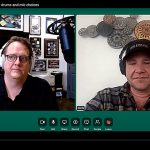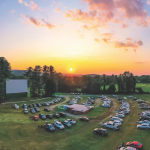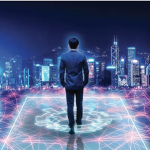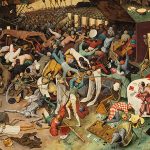
The recent Pollstar Live! event in Los Angeles covered a lot of ground, and in doing so expressed widespread optimism about the music business in general, which has been buoyed in recent months by, in particular, significant increases in paid streaming. These are beginning to offset — and in some ways surpass — the losses incurred by the death of physical sales and downloads.
But live music remains the industry’s anchor at the moment, and it was serial entrepreneur and NBA Dallas Mavericks owner Mark Cuban’s comments on that at the event that caught my ear. “When I first got to the Mavs, everybody thought they were selling basketball,” he told the audience. “We don’t sell basketball, we sell experiences. And I think music’s the same way. A lot of times we make the mistake of thinking people go to concerts to listen to music. No one goes to concerts to listen to music; it’s the worst possible way to listen to your favorite artist. You’re hearing the guy next to you screaming ‘Born In The USA.’”
Chances are these days, with Bruce Springsteen comfortably ensconced in a Broadway theater, if someone next to you at a concert is screaming “Born In The USA,” they’re probably trying to convince an ICE agent that they’re not an undocumented alien. Cuban’s comments seem blustery at best, heretical at worst. He did elaborate, however, adding, “You don’t go to listen to music, you go for the experience, you go to have fun, you go because you want to scream, you want to have a drink, whatever it is. We lose track of the fact that we don’t ever talk about the experience when we try to sell concerts, and I think that’s a huge failure of the music industry.”
Cuban’s words are what you’d expect from his cohort of entrepreneurial iconoclasts, TED Talk-type aphorisms chosen for their shock value and capacity to disrupt. But while he tends to show up almost as often as Bob Lefsetz at music-industry gabfests, his thoughts are not without merit.
The Next Inflection Point
We’re arguably closing in on the end of what we might call “peak concert” — the moment in time that the music-touring business can reliably sustain the larger music industry.
We knew that the classic-rock artists who have been the consistently big generators of ticket sales for the last two decades were headed for retirement sooner or later. We’ve already had some major announcements along those lines in recent months, including Paul Simon’s final tour (I think he actually means it) and Elton John’s last roundup (which comes with three year’s notice).
Last year’s biggest-revenue tours featured acts that date back decades, including U2, Guns N’ Roses, Metallica, Depeche Mode, Paul McCartney, the Rolling Stones and Garth Brooks, all of whom had their first hits when MTV was still a thing. (In the case of Sir Paul and the Stones, when Ed Sullivan was still a thing.)
Only Ed Sheeran and Bruno Mars offer a glimpse into an uncertain future — they’re young enough to have decades of touring ahead of them, but will they want to? Will there be other ways to profitably present themselves to audiences that won’t involve the grind and expense of a traveling circus? For instance, Icona Pop has used Samsung’s Galaxy Gear smartwatch technology to provide fans at home with a 360-degree digital concert (and to sell Samsung Galaxy Gear smartwatches). Similarly, Kasabian gave fans an opportunity to view its concert from afar using Visualise’s VR headsets. This is where the notion of an experience versus a conventional concert will become its own very real thing.
Gearing Up for Another Reality
Contemporary tours have given nods to making what was once just a concert into a more immersive experience. Chris Stapleton’s 2017 tour set, built by Sonalysts, has very real acoustical properties, and those translated into better sound in the seats, but it also was designed to make fans feel like they were getting into his personal big-little igloo. But the handwriting is on a larger wall yet. Citi, Live Nation and NextVR have announced that they plan to broadcast more concerts in real time in virtual reality, like the one they did with Imagine Dragons last year. Universal Music Group, the world’s largest music company, and virtual reality company Within, which has raised more than $56 million in venture capital, announced they would work together to create and develop augmented and virtual reality experiences around music.
Artists are becoming increasingly used to connecting with fans through online experiences. For instance, the CEO of Within earlier developed a project with the band Arcade Fire, The Wilderness Downtown, in which users were prompted to enter their childhood home address, which would become the locus of an interactive film that would depict a teenager running through the old neighborhood and stopping in front of the fan’s home, drawing from Google Maps and Street View images. Cool stuff, but really just virtual extension of the kinds of connections fan clubs have done for years. The real trick is making that kind of experience happen in real time, at a live concert.
And it will. The image of Tupac rapping at Coachella is so 2012 — Base Hologram has Roy Orbison out on tour now; a rival producer, Hologram USA, recently opened its own hologram theater in Los Angeles to host virtual performances by the late Billie Holiday. Another competitor, Eyellusion, is currently taking a hologram of Black Sabbath frontman Ronnie James Dio on a world tour. And ABBA is plotting their own holographic tour for 2019, featuring the likenesses of the four band members, all of whom are still very much alive.
You’ll Still Be Needed
However, experiences cost money, and that’s going to drive up ticket costs, which are already high and which could also keep more people from attending more shows. Interestingly, though, production costs for such experiences tend to lean below the line, with more expended on technology (and technologists) than on the talent on stage (in the case of holographically reanimated performers, the box office take now goes to licensing payments).
Those who mix the sound for live music, along with their brethren on the lighting boards and elsewhere, will have to adapt to an experience-focused touring landscape, but whether it’s virtual reality (VR), augmented reality (AR), or Elvis, the sound will still need to be mixed, and well. As to the future? Bring it on!



